Topics for discussion in classes 8-9
Exam Topics for Grade 9
Topics for discussion in English lessons
Bridges can be different
(According to the materials of the magazine "IYaYH-2005, Methodical mosaic No. 5-6)
... A man built a city, banks and cathedrals ...
(The words from the U2 song)
Man built bridges - crossings of diverse natural obstacles - besides. Bridges are not unusual for us. Though at the same time a bridge is a genuine miracle ... here are the top 11.
This bridge was located in Babylon and built in the 7th century AD. Its length was about 700 meters and it was 9 meters in width. The Euphrates River flowed under it. This is the most ancient bridge led to the main temple.
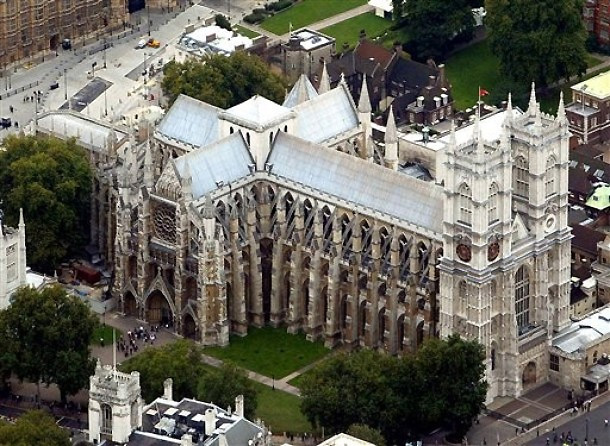
It wouldn’t be possible. More than 100 years ago, the Italian acrobat Maria Spelterrini walked the tightrope across Niagara Falls.
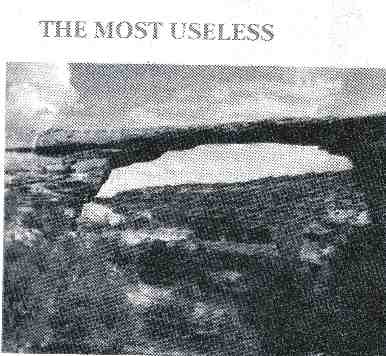
The Utah State Road It leads nowhere. This is a football ground. In fact, the US Capitol could fit under its arch.

The Florence World Heritage Site. The city’s bridge has been torn apart. It was replaced by a bridge that failed in 1333. The architect is Taddeo Gaddi,

The spectacular Bridge links Cape Jourimain, New BrunswickandBorden- Carleton,
Prince of Edward Island, United States not far from Canada. The technology of the 90s made; possible construction of a bridge stretching almost 13 kilometers. It is currently the longest bridge in the world.

This bridge was built in 2004 over the tarne valley in France. Completing the span of the roadthe highest bridge in the world. The road surface is 270 meters above the ground. The bridge, along the road to December 17, 2004, 39 months after work began.
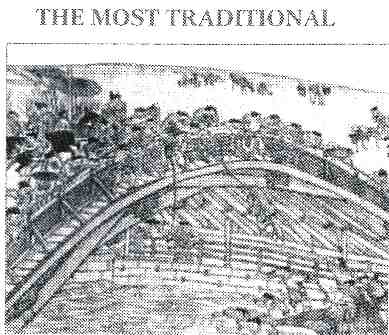
The "Rainbow Bridge" in Shanghai, China. Until the last bridge of the rainbow bridge Its length is 15 meters and its width is 3.6 meters. The rainbow is considered the road between the worlds and the mortals.
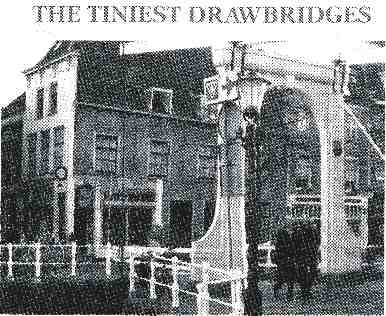
Such bridges arc mostly built in Denmark and Northern Holland. A drawbridge is a type of movable bridge and a bridge. It is attached to the wall. It is raised by ropes or chains. Pulling on the chain raises the bridge.
The most unusual
There is a river where it is located. The bridge is the one of the smallest in the world.

The bigger island of the USA.

The Lieutenant Shmidt bridge in St.Petersburg across the Neva was built in the 19th century. It was named in honor of the ship "Ochakov". It is a raising bridge. The grating was designed by the architect A.P. Brullov, a famous artist "brother. During these years, Blagoveshchensky, Nikolaevsky

Nan Pu Bridge was built in 1991 in Shanghai. It has a navigational over-head of 46 meters, accommo-dating any steamer with a tonnage of 55,000. With a full length of 846 meters and a width of 30, 35 meters, the bridge has six lanes and two pedestrian lanes. Historically it is a spiraling bridge in China.
E. ABOUT . Gracheva, III year student of MGPU,Moscow
copyright: © Yastrebov V.I. 04/29/08 - 04/02/09 - 01/08/09 - 04/05/11

One of the main advantages of this textbook is the relevance of the topics placed in it and the novelty of the content. It includes 30 conversational topics that affect the problems of the modern world and man. The manual is intended for high school and college students, university students and teachers. It allows you to effectively combine learning English and preparing for the exam. This manual will help you carefully prepare for a lesson, test, exam or Olympiad, get acquainted with interesting facts, increase knowledge. It is useful to those who learn English on their own.
Examples
Answer the questions
1) How does a person's life influence?
2) What kinds of hobbies do you know?
3) Why do people collect different things?
4) What is your attitude to extreme camping?
5) Why is ecotourism fashionable today?
6) What are the principles of eco-tourism?
7) Why is it so important?
8) How do you spend your spare time?
What may the following nonverbal messages indicate?
A person
(1) nods his head; (2) pats another person on the shoulder; (3) shrugs his shoulders; (4) places his index finger to his lips; (5) keeps silence; (6) coughs slightly; (7) waves his hand; (8) stares fixedly at another person; (9) raises his voice; (10) stammers; (11) covers his face with his hands; (12) smiles a lot.
Answer the questions
1) What language do we use?
2) Why do researchers believe that nonverbal communication is more powerful than verbal communication?
3) What is the connection between nonverbal communication and a person's culture?
4) How do people greet each other in different countries? How do they greet each other in your country?
5) What is the play?
6) What can the "OK" gesture mean in different countries?
7) Why doesn't it play?
8) Why is it useful to develop good communicative techniques?
9) What is your relationship and personal relationship?
10) How can you facilitate communication?
Contents
A Hobby Makes Your Life Much More Interesting 5
Why do we dance? 9
Video and Computer Games 13
The Changing Face of Tourism: Ecotourism 18
The World "s Bizarre Festivals 23
The Mystery of Dreams 27
Artificial Intelligence 31
Mobile Phones: A Vital Part of Daily Life 36
What do you know about names? 41
Stress And How To Cope Well With It 45
Stop It Before It Is Too Late 49
Generation Gap: Reality or a Psychological Prejudice 53
Price of Publicity 57
Friendship: A Single Soul Dwelling in Two Bodies 60
Love Is Life 64
Poverty and Richness Corrupt People's Souls 69
Ways of Being Successful 73
Sorry Seems to Be the Hardest Word 78
Is it worth relying on our Intuition? 81
Nostalgia 85
What are Americans like? 88
Is it worth lying? 93
Nonverbal Communication 98
Multiculturalism in the Modern World 102
My Home Is My Castle 106
What is a good job? 112
Colors and their Associations 116
Beauty Through Pain 121
Parenting: The Most Important Job Job on the Planet 126
Multiracial Families 131.
The most common question that potential guests ask us on the phone sounds like this: “What is your Conversation English Club anyway?” We tell :) We meet and speak English for 2 hours every day. But what a typical meeting looks like.
We are often asked: what do the meetings of the English Speaking Club look like? For example, one of our meetings in Costa Coffee. We sit, talk, drink coffee, discuss urgent problems in English. Like? Join our meetings!
Are you visiting us for the first time and do not know how to find a table of the English Language Club in a cafe? Very simple: look for a table at which they speak English! For example, one of our meetings in Costa Coffee. We always have fun, have fun, and we speak only English. Like? Come!!!
It seems to you that starting to speak English is very scary? 90% of the guests of our English Conversation Club think so, but ... 15 minutes after the start of the meeting, they forget about the language barrier forever !!! After all, we always have the most friendly atmosphere and the best moderators who will help and prompt !!!
Friends, at the meeting of the English Club, in addition to the presenter, there is always a person who is ready to take care of you - our administrator. The administrator will meet you at the beginning of the meeting, register guests, order drinks and generally resolve all issues. Here, for example, Christina (in the photo on the right) is one of the administrators of our Club.
Each meeting of the Speaking English Club lasts 2 hours, and all this time we are talking on a specific topic. Topics for meetings are published in advance on the main page of the site so that you can prepare if you want. For example, at this meeting discussed the topic of Hypothetical Situations.
At every meeting of the Colloquial English Club we talk on a specific topic for 2 hours. We have interesting questions, everyone has different opinions - never happens to be boring !!!
You still do not know what the Colloquial English Club is? We tell :) At each meeting of the Club, we communicate in English for 2 hours. Want to practice English? Join now!
Those who are going to our English Club for the first time always ask who goes to us and whether it is easy to fit into our company. Friends, all our guests are not only smart and interesting, but also very friendly people !!! Look at the photo, you will understand everything yourself :)
Most of our guests come to the English Language Club to break the language barrier. And when he is overcome, they stay with us to practice English and ... just communicate :)
Friends, at the meeting of the English Club, in addition to the presenter, there is always a person who is ready to take care of you our administrator. The administrator will meet you at the beginning of the meeting, register guests, and resolve all issues. Here, for example, Anastasia is the administrator of our meetings on Wednesdays.
If it seems to you that the cafe is too noisy place for the Conversation Club English - welcome to our meetings in the library to them. ON. Dobrolyubova. It is always quiet and cozy here, and in the middle of the meeting we take a tea break with cookies.
Friends, this is how our meetings in the library look like. A large oval table, everyone is sitting, discussing issues on the topic, the presenter corrects the participants, if necessary. We always have a lot of fun, cozy and cultural - in general, the atmosphere that is needed to practice English!
At every meeting of the Club of Conversation English, there is always a moderator who involves everyone in the conversation, corrects minor errors and stops those who speak too much (it is very easy to get carried away!). Want to practice English? Join now!
Those who want to come to us for the first time often ask who goes to us. The answer is: our guests are very different people by age, profession, etc. But they are all very positive individuals, because people do not learn boring foreign languages!
2 hours to speak on a certain topic, and even in English, can be hard. Therefore, in the middle of our meetings in the library, we take a break of 10 minutes to drink tea with cookies.
This is the oldest city of the Romans and Saxons. Its founder is considered to be Wilhelm I (Duke of Normandy, William the Conqueror). Having conquered England, it has become the largest of all. White Tower was built from the White Tower. The White Tower represents a quadrangle of 32 meters wide and 36 meters long. Its height is about 30 meters. The building was finished in 1100. The building was finished. It was also surrounded by moat.

Westminster Abbey is rightly considered one of the main sights of London. The history of Westminsterwhen he was existed there. It has been the XIII century, it has been used in the XVI century.

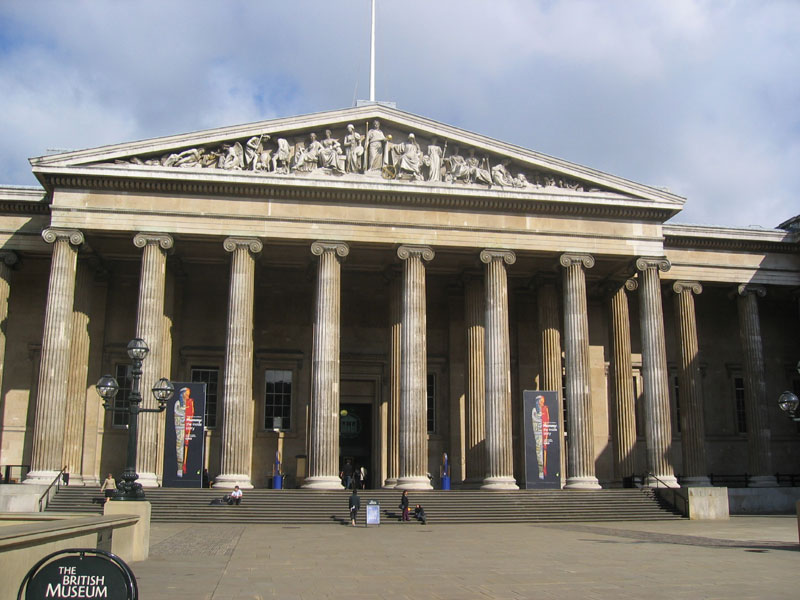 The british national museum is justly considered to be the pride of London. It is a unique treasury of the seven million of exhibits. The history of the British Museum dates back to far 1753. During the 15th of September 1759. As it often happens, it exists. Only three persons managed to make it. Heyou hasn’t been his first choice.
The british national museum is justly considered to be the pride of London. It is a unique treasury of the seven million of exhibits. The history of the British Museum dates back to far 1753. During the 15th of September 1759. As it often happens, it exists. Only three persons managed to make it. Heyou hasn’t been his first choice.

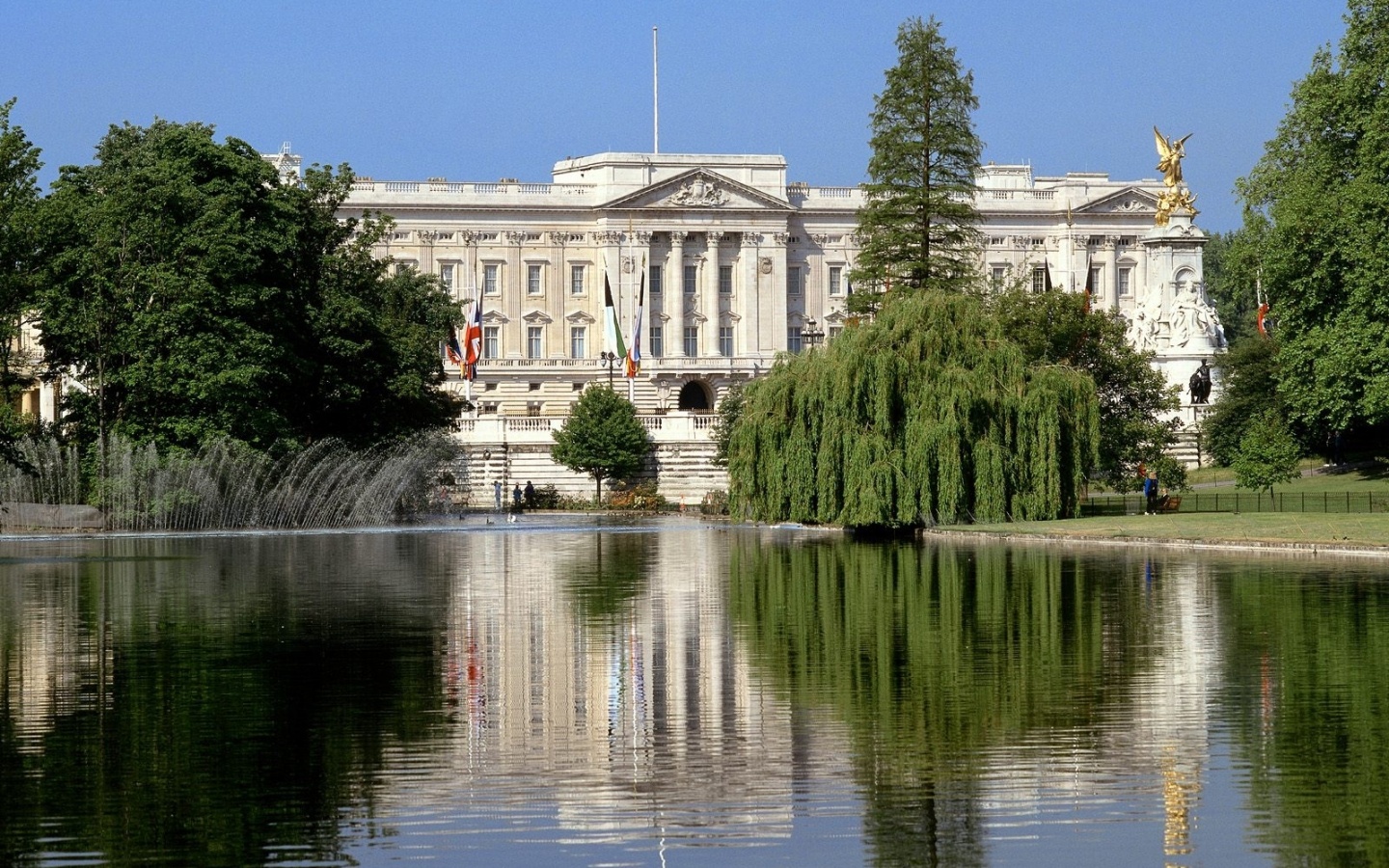 London’s southeast corner of the sky. Today it is the official residence of the Royal family of England.
London’s southeast corner of the sky. Today it is the official residence of the Royal family of England.
Dates many centuries back. It was originally built in the twentieth century. In 1762, it received the title of “Queen's House” right after its purchase for its spouse - sir Charles Sheffield.

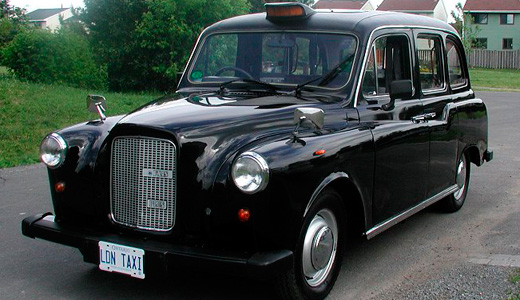 It is a world famous London taxi cab. Black cab double-deck buses, telephone booths and Big Ben. English taxi taxi driver in a taxi. Initially they used four-wheeled carriages, they were called “cabriolets” (“cab” originates from).
It is a world famous London taxi cab. Black cab double-deck buses, telephone booths and Big Ben. English taxi taxi driver in a taxi. Initially they used four-wheeled carriages, they were called “cabriolets” (“cab” originates from).

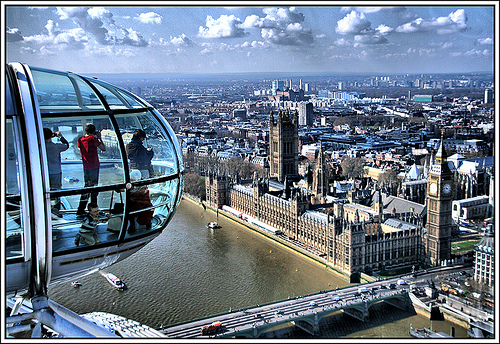 European Ferris wheel on the Thames embankment. The new tourist attraction of London was called “the London Eye”. The 45-storey skyscraper is 135 meters high. Architects Julia Barfield and David Marks. It can be seen that it can be a scourge. Hardly had it. It makes it even more.
European Ferris wheel on the Thames embankment. The new tourist attraction of London was called “the London Eye”. The 45-storey skyscraper is 135 meters high. Architects Julia Barfield and David Marks. It can be seen that it can be a scourge. Hardly had it. It makes it even more.

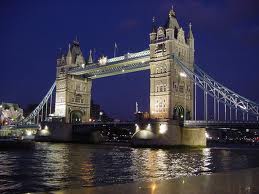 One of the most popular English sights is Tower bridge in london. Even if you never see it before - you’ll recognize this place. He appeared in the following way: So an architect Horace Jones worked out a bridge of Gothic style.
One of the most popular English sights is Tower bridge in london. Even if you never see it before - you’ll recognize this place. He appeared in the following way: So an architect Horace Jones worked out a bridge of Gothic style.
42 meters over the highway and 34 meters over the highway. The symbol of london It is also 10,000 tons sail beneath.


People worldwide celebrate in February, 14 th. It is when they try to congratulate them in various ways. Traditionally people give small presents to each other on St. Valentine’s Day Day Flowers, Love Chocolate Flowers, Valentine's Day Love couples, celebrate by declaration of love and engagement. They believe it can bring them happiness.
Determine the purpose of the interaction
Let's discuss pro and contra - Let's discuss the pros and cons
Let’s clear it up. It’s a matter of great importance.
We enter into the discussion, voicing the theme of his statement
I like not to add ... - I’m not a very good speaker, but I want to add (we enter into the discussion)
What I want to speak about is ... What I want to talk about now is ...
Let me inform you about ... - Let me inform you ...
And now about ... - And now about ...
As for ... - As for ...
My speech will be about ... - It will be about ...
I will tell you about ... - I will tell you about ...
Independently evaluate the information that we share with others
At first - First
First of all - First of all
As far as I remember / know ... - As far as I remember / I know ...
If I "m not mistaken ... - If I'm not mistaken ...
If I remember rightly ... - If I remember correctly ...
It’s needless to say ... - Needless to say ...
It's common knowledge that ... - It's common knowledge that ...
It's well known that ... - It is well known that ...
Everybody knows ... - Everyone knows that ...
No one is surprised to hear that ... - No one will be surprised to hear that ...
It's important, I think. - I think this is important.
It’s also very interesting that - Also very interesting ...
Frankly speaking - Honestly
Strictly speaking - Strictly speaking
To say the truth - To tell the truth
In fact - in fact
There is no doubt that ... - There is no doubt that ...
We voice the train of thought
Now, where was I? “So what was I talking about? ...”
Where were we? - Where did we leave off?
Getting back to the topic - Returning to the topic.
What are you driving at? - What do you mean?
I just say things that come into my head. - I'm just saying what comes to mind.
We supplement the statement
In addition ... - In addition ...
I would like to add that - I would like to add that ...
By the way - by the way, by the way
Just for the record - for reference
Fill the pause, win time
Let me think ... - Let me think ...
Wait a moment / just a moment / minute ... - Wait a second ...
How could it slip my mind? “How could this get out of my head?”
Oh, it’s a pity, I don’t remember his name - pity, but I don’t remember his name ...
I’m trying to collect my thoughts. - Trying to collect my thoughts.
We doubt understanding what we heard, ask again, clarify
What do you mean? - What do you mean?
What does it mean? - What does it mean?
... What is it? - ... (a word that is not understood) What is it?
What do you want to say? - What do you want to say?
Could you say it again? - Please say it again.
Could you repeat, please? - Could you please repeat.
Excuse me, I don’t understand. Could you speak not so quickly? - Sorry, I do not understand. Could you speak not so fast?
I don’t quite follow you. - I do not quite catch the idea.
I’m not sure I get what you mean .- I’m not sure I understood what you meant.
What did you say? - What did you say?
In other words ... - In other words ...
Paraphrasing we can say ... - In other words, you can say ...
We confirm understanding
I see ... - I see (I understand) ...
I understand ... - I understand ...
And? ..AND?
I got it. - Got it.
We respond to the information received
Really? - True?
Are you going? - Are you sure?
I was surprised. - I am surprised.
That 's awful! - It's terrible!
Shame on you! - Shame on you!
It doesn't matter for me. - It does not matter to me.
It’s a pity. -It's a pity.
It is a thousand pities. - Very sorry.
It could be better. - Could have been better.
It could have been worse! - Could be worse.
Dear me! - Wow! (surprise)
O my God! - Oh my God! (surprise)
Things happen. - Anything can happen.
It's terrible! - It's horrible!
It's boring! - It's boring!
I didn't like it at all. - I don't like it at all.
It is great! I like it. - Great! I like.
It’s really interesting. - This is really interesting.
I can’t say it "s great. - I can not say that it is great.
Not bad. - Not bad.
I dislike it. - I do not like.
Ask a question
May I ask you ... - Can I ask you ...
I wonder ... - Interesting ...
I would like to know ... - I would like to know ...
Tell me please ... - Tell me, please ...
My question is ... - I have such a question
I wish I knew ... - I wish I knew ...
We respond to the question
I really don’t know. - I really do not know.
It’s an interesting question, thanks a lot. - This is an interesting question, thank you.
Express your own opinion
In my opinion - In my opinion
I think - I think
To my mind - In my opinion
From my point of view - From my point of view
I believе ... - I think ...
I suppose - I guess / I guess
As for me ... - As for meeeee
I’m sure - I'm sure ...
Probably - Probably Probably
Something tells me - Something tells me ...
It was just my point of view. - This is just my point of view.
I found out that ... - And I found out that ...
I just wanted to show you ... - I just wanted to show you that ...
That 's my opinion! And I don’t eat my words. - This is my opinion, and I do not take back my words.
We support the attention of the interlocutor, we place logical accents
Believe it or not ... - Believe it or not ...
Look here ... - Listen ...
You know ... - You know ...
Please pay attention to the fact that ... - Please pay attention to the fact that ...
As you may know ... - As you probably know ...
You see ... - As you see ...
Politely interrupt the interlocutor
Excuse me ... - Excuse me ...
Pardon me ... - Excuse me ...
Sorry to interrupt ... - Sorry to interrupt ...
May I interrupt (for a minute)? - Can I interrupt you (for a moment)?
Can I add something here? - Can I add here ...
Express disagreement with the arguments of the interlocutor and give counter arguments
I’m afraid you aren’t quite right ... - I'm afraid you are not quite right ...
I don’t understand you ... - I don't understand you ...
I should not say so ... - I would not say so ...
I doubt it ... - I doubt it ...
It’s an interesting idea but ... - An interesting idea, but ...
Yes, but. . . “Yes, but ...”
Yes, you are right, but ... - Yes, you are right, but ...
You may be right, but ... - You may be right, but ...
I may be wrong, but ... - Maybe I'm wrong, but ...
Not bad. I just want to pay your attention ... - Not bad. But I just want to draw your attention ....
But don’t forget about ... - But don’t forget about ...
It’s true but ... - It's true, but ...
It might be so, but ... - Maybe so, but ...
Far from it ... - Not at all ...
Nothing of the kind. - Nothing like that.
Nothing like that. - Nothing like this.
I can’t say I agree. - I can not say that I agree.
I just want you to understand that ... - I just want you to understand that ...
Most unlikely - It doesn't seem like that.
I don "t think so. - I don't think so.
I wish I could agree, but I really couldn’t - I’d be happy to agree, but I can't.
To offense, but ... - No offense, but ...
It's clear, but ... - I see, but ...
It doesn "t prove your idea. - This does not prove your point.
You had better think about ... - You'd better think about ...
On the contrary - On the contrary
In spite of this ... - Despite this ...
I hope you’ll change your mind. - I hope you change your mind.
Generally I like your idea, but ... - In general, I like your idea, but ...
It's a lie. - It's a lie.
It seems me to be false. - It seems to me wrong
I understand your position but ... - I understand your position, but ...
What are you talking about? - What are you talking about?
But we must take into account ... - But we should take into account ...
But we must take into consideration ... - But we should consider ...
But it is to be noted ... - But it should be noted ...
Deep down I disagree. - In my heart I do not agree.
But, please, don’t let out of your sight the fact ... - But please, do not lose sight of the fact ...
But I dare say - But I dare say ...
We agree with the interlocutor
Exactly! “Right! Exactly!
Naturally! - Naturally!
Quite so. - Exactly.
That "s right. - Right.
I agree with you. - I agree.
You read my mind. - You are reading my mind.
I dare not protest. - I do not dare to object.
Hmmm ... I hadn’t thought of that before. “Mmm ... I haven't thought about it before.”
It's new to me. - This is new information for me.
We offer to the interlocutor
’S ’s ’s - ’s Let’s
Why don’t we (+ verb in initial form) ... - why don't we (+ verb in initial form) ...
May be we will - Maybe
We could ... if you like it ... - We could ... if you want ...
If you don’t mind, let’s ... - If you don't mind, let's ...
And what about (+ Ving) - What about ...?
May be ... What do you think of it? “Maybe ... What do you think about this?”
If I were you I would ... - If I were you, I would ...
What if ... - What if ...
What do you think about. . “What do you think about ...?”
We respond to the offer
It's worth trying / discussing ... - Worth trying / discuss ...
That’s interesting. - It is interesting.
Great idea! - Great idea!
I have nothing against! - I have nothing forgive.
Why not? - Why not?
It’s fantastic! - Fantasy!
That’s great! - Well!
OK. - Good.
Of course. - Of course (of course, everyone already knows this).
Certainly. - Of course.
With great pleasure. - With pleasure.
As you want. - As you want.
It's all the same to me. - I don't care.
What for? - What for?
We conclude the discussion, summarizing
People say tastes differ. - They say that tastes do not argue.
It’s matter of opinion. - That's a moot point.
All in all .. - Ultimately, taking into account all the circumstances ...
Wait and see. - Wait and see.
Let 's drop the subject. - Let's leave this topic.
I don’t want to discuss this problem. - I do not want to discuss this issue.
It is nice to speak to you. - In any case, it was nice to talk to you.
Use your own judgment. - Decide youself.
To sum up ... - To summarize, to summarize the above ...
In short / in brief / in a word - In short ...
In general ... - In general ...
In conclusion I would like to say ... - In conclusion, I would like to say ...
After all ... - In the end, in the end ....
So the main idea is that ... - So the main idea is that ...

Archive for the Category »Conversation Topics
All question words in English and their combinations
Nikon School launched online courses for photographers in Russia
How to stop eating fat
"Second Chelyabinsky": an asteroid the size of a house will fly past the Earth